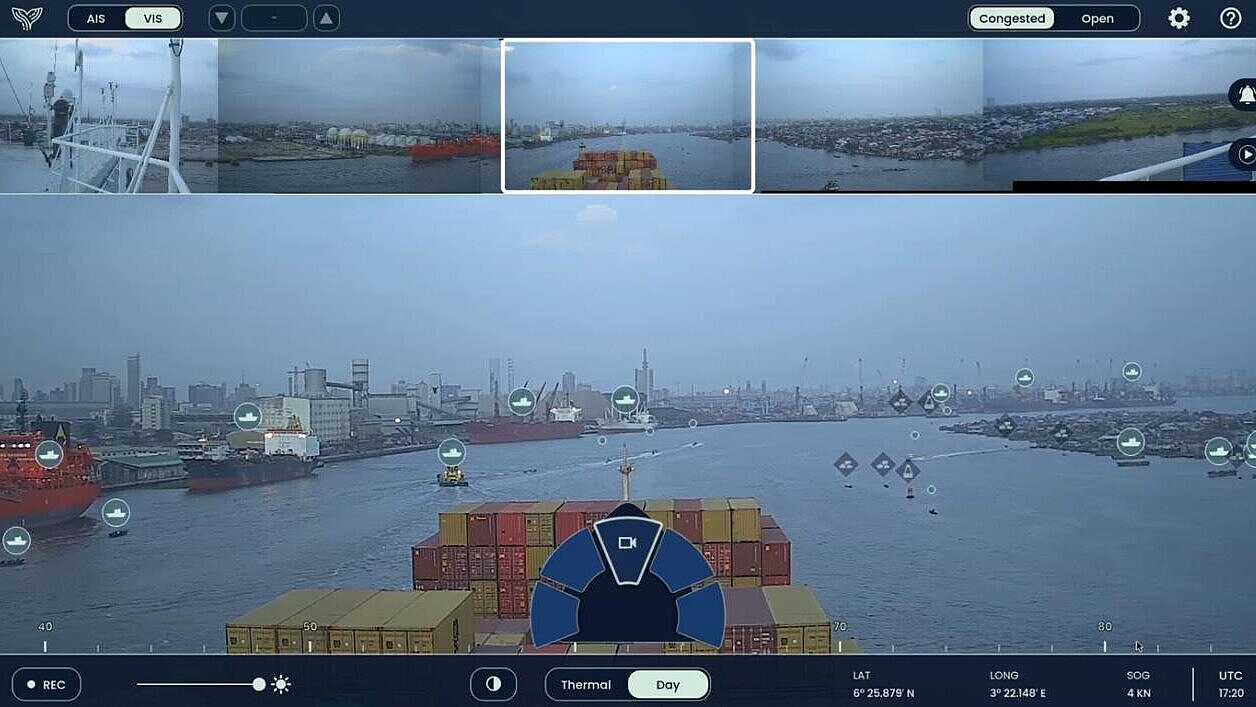
Orca AI clocks up efficiency gains

Screenshot from the bridge at daytime (Source: Orca AI)
Data covering 15 million nautical miles of voyages made by 267 ships in 2023 has recorded significant operational gains from Orca AI’s situational awareness platform. The analysis revealed a reduction in CO2 emissions of more than 170,000 tonnes as a result of fuel savings, fewer sharp manoeuvres and speed drops, as well as fewer near misses and possible collisions.
The data, collected from tankers, container ships, bulk carriers, and RoRo vessels, recorded an average of two close encounter events per thousand miles sailed. These were assessed against key performance indicators including closest point of approach, time to closest point of approach, reaction time, average speed over the ground, average cross-track error, and weather conditions.
The Orca AI system uses a SeaPod lookout unit equipped with high-resolution daylight cameras and thermal cameras, providing a 225-degree field of view. The computer vision data is then fused with other data from sensors on board ship and displayed on the bridge. This identifies and tracks marine objects in real time, providing alerts and recommendations to support safe navigation. The system aids decision-making in low visibility conditions, at night, and in congested waters, Orca AI said in a statement.
Orca AI chief technology officer and co-founder, Dor Raviv, said: "We remain committed to supporting our forward-thinking customers in ensuring safe navigation in congested waters, reducing the work burden on watch officers also during long voyages in open water, and reducing OPEX costs thanks to reduced fuel consumption."
“Safety, efficiency, and emissions reduction are crucial in terms of not only corporate sustainability targets but also maintaining CII scores for ships … Achieving these consistent operational improvements from year to year validates our continuing vision to work in partnership with top-tier shipowners and operators to create a safer and more efficient shipping industry,” he added.
